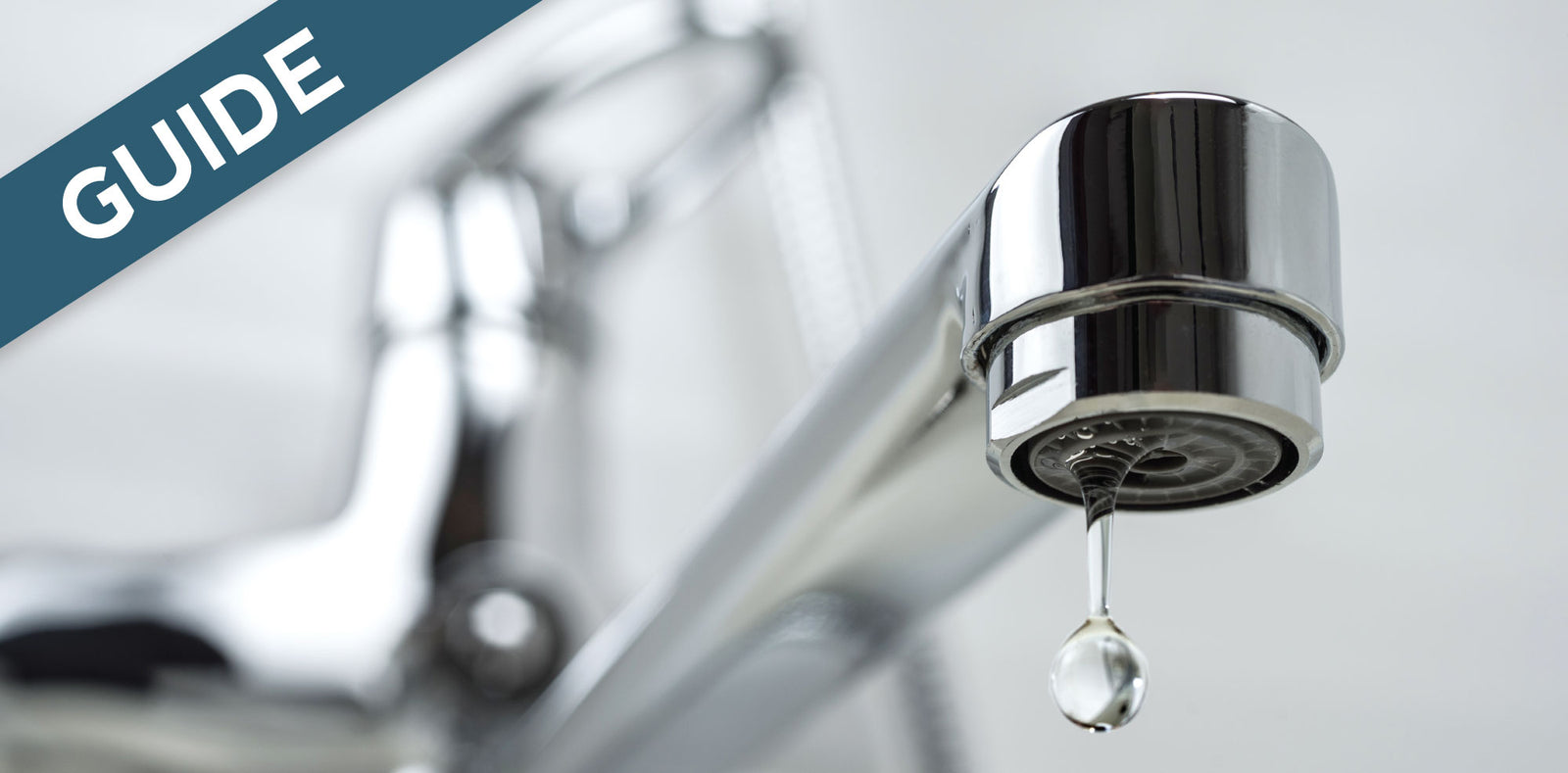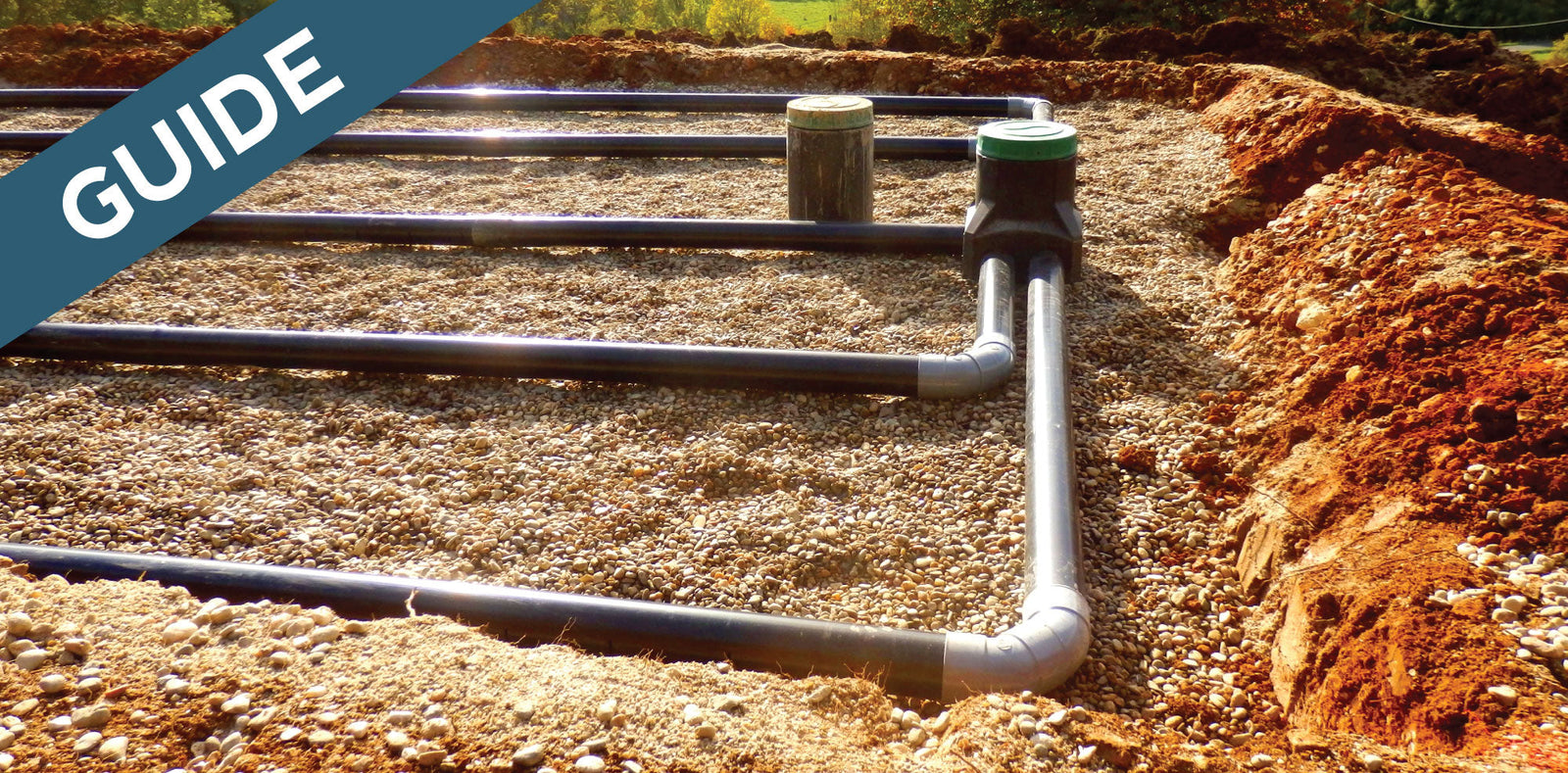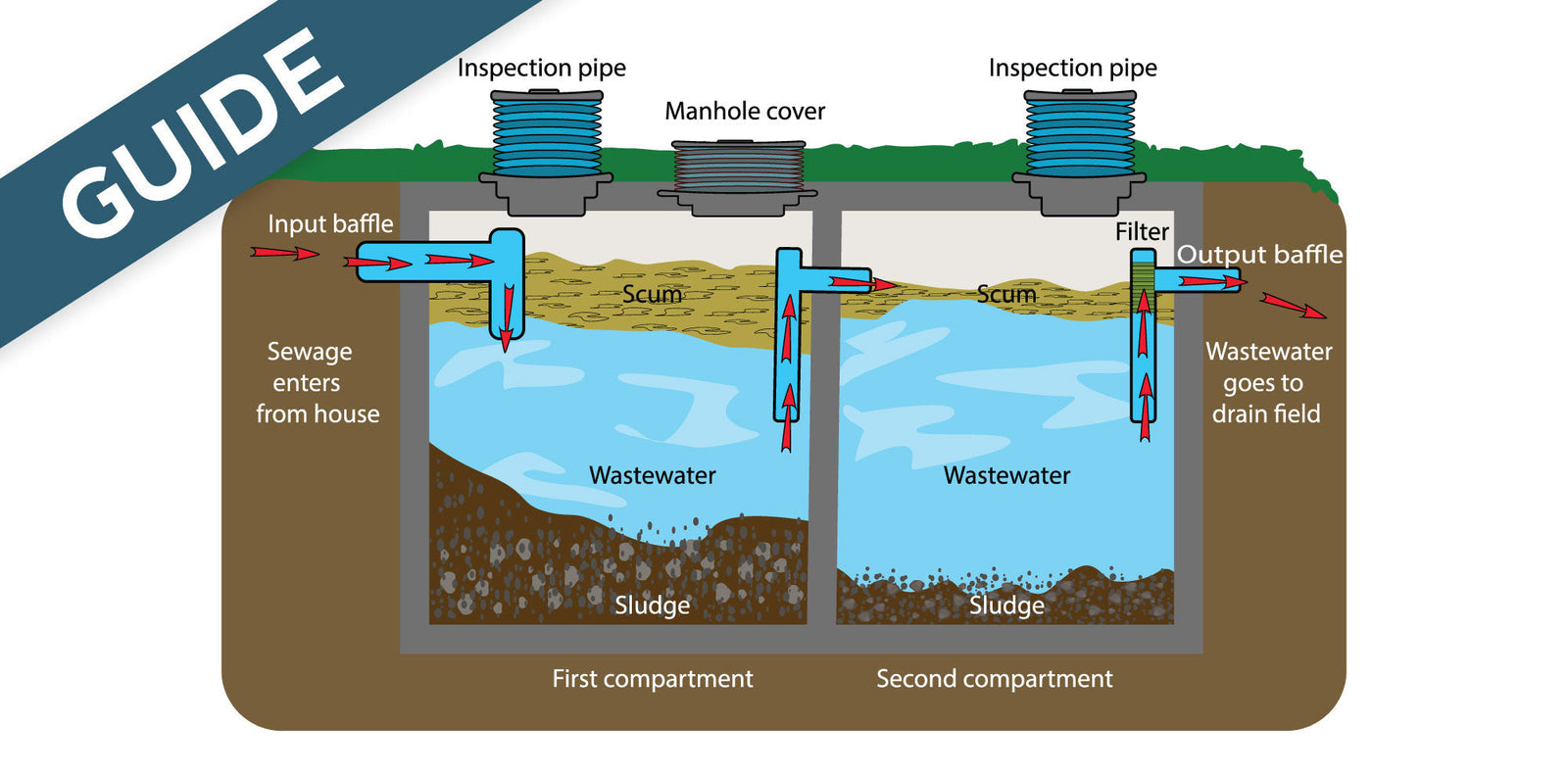My dad still tells stories of how much water we used when my three teenage sisters were still in the house. When he recounts those days long ago, a look of discomfort (or maybe even a slight twinge of horror?) enters his eyes. “We used so much water between all of us,” he says, “that I could smell the sewage when I stood in the backyard.”
I don’t remember those days, and as a reedy seven-year-old taking luxurious 40-minute showers, I would of course never be one to contribute to the problem.
All jokes aside, although those days are long gone, my dad learned an important lesson: excessive water usage can lead to huge, often irreversible septic system problems.
But you gotta live, right? And in order to live, you have to use water. But then again, especially if you have a bunch of people living in your home, conscious water usage becomes so important in septic systems, that we can’t simply ignore it. I mean, we’re writing an entire blog about it, so it must be pretty crucial!
In fact, conscious, reasonable water usage is one of the key elements of proper septic system maintenance. So while actually living is super necessary indeed, it must be balanced with conscious efforts to reign in some overly excessive water usage.
Why is Conscious Water Usage So Important?
On average, according to the EPA (i.e., The United States Environmental Protection Agency), a single family household uses about 70 gallons of water per person. And imagine this: one leaky faucet could cause you to lose over 20 gallons of water each and every day!
If a septic system is continually overloaded with excessive amounts of water, it may last for a while—maybe even many years—but eventually it will fail. Septic systems process water slowly, allowing it to trickle out into the leach field as the bacteria gradually break down the waste inside the tank. So if the system gets overloaded with water, the waste has to go somewhere. More often than not, thatsomewhere is into your leach field lines or even, like in my father’s situation, into your backyard!
How to Cut Back on Water Usage
We’ve established that conscious water usage is top-notch crucial. The fact is that most of us need to drastically cut back on our water usage. Here are some helpful tips for reforming your water-usage habits:
1. Invest in some high-efficiency toilets.
In most households, toilets are really the chief culprits for excessive water usage. As a matter of fact, you can blame your toilets for 25-30% of your total household water usage! Think about it: a toilet has a 3.5 to 5 gallon water reservoir. That’s alotof water! With each person in your home using the toilet multiple times per day, water usage can ramp up exponentially.
High-efficiency toilets, as their name indicates, significantly reduce water usage. Where a normal toilet would use 5 gallons of water, a high-efficiency toilet can use less than 1.6 gallons. While that might still seem like a lot, it’s a massive improvement!
2. Swap out your faucet tips and showerheads.
Obviously, next to toilets, faucets and showerheads use the most water. When you come right down to it, that’s what they’remeantto do. But there are actually ways to reduce water usage even in these areas.
To begin with, faucet aerator tips will drastically reduce water usage simply by slowing the flow of water and mixing water with air. Faucet aerators can be screwed onto the tips of most faucets, and they’re very cheap!
In the second place, high-efficiency showerheads can significantly aid you in your quest to conserve water. These showerheads reduce water usage in much the same way that faucet aerators do: by restricting the flow of water and combining water with air.
3.Say no to 40-minute showers.
Unlike me when I was younger, you can choose to be mentally strong in the face of the powerful temptation to enjoy a hot shower for three quarters of an hour. Yes, it’s hard, but think of this: a four-minute shower uses about 20-40 gallons of water. Imagine how many gallons go down the drain during a40-minute shower!
I think this was the main thing my dad was worried about back in the day. With six people in the house—all vying for the bathroom and living it up when they got their turn—long showers became the status quo. But when hundreds of gallons of water flood into a septic system every hour, you’re basically asking for massive issues.
4. Wash-up on your washing machine protocol.
We all need to do laundry. No one’s arguing about that. But exactlyhow we do our laundry has a huge bearing on how much water actually gets used in the process.
One way to elude excessive water use while doing laundry is to avoid the permanent press cycle. This cycle often uses extra water to rinse the laundry after the wash. And here’s a factoid for you: If you’re dealing with a small load of laundry, your washer might allow you to adjust the time and/or amount of water you use for the load.
What’s more, rather than doing one huge batch of laundry once per week, it might actually be easier on your septic system if you do multiple smaller loads of laundry and spread them out over the week. The reason is that one large batch of laundry can easily overload your system. I mean, that’s atonof water all at once!
To top it off, you could consider getting yourself a high-efficiency washing machine. These gizmos work much like high-efficiency toilets—cutting down on water usage over time.
5. Check for and fix any water leaks around the house on a regular basis
Remember when I said that a leaky faucet could cost you up to 20 gallons a day? Yeah, it’s no joke. But a leaky toilet, by comparison, can flood your septic system with nearly200gallons a day. That’s aton of water to flow into your septic system in a crazy short amount of time. You’re basically asking for damage at that point.
I’m not trying to freak you out—only encourage you that this is something that’s definitely worth checking. You should inspect your faucets and toilets frequently, and checking your water meter can also help.
6. Be the connoisseur of all your water use
Saving your septic system the strain of processing tons of water is only half the battle. If you really want to take your water-saving powers to the next level, you should consider repurposing your water.
For example, you can catch extra water in a bowl after washing vegetables and use it to water your garden. In fact, watering your garden by hand is an all-round better option. Actually, people who hose-water their gardens end up using about 33%more water than those who do so by hand.
7. Steal rainwater right out of the sky
Okay, don’t steal it. Don’t steal anything, please. Instead,capturerainwater from thunderstorms, snowstorms, etc. This can be a terrific way to not only save water, but get more in the process! Obviously, this water is typically used for activities that don’t involve your indoor plumbing (like watering the garden) but where it is legal, catching rainwater is a great way to be water conscious!
To Sum It All Up
I think it’s fair to assume that you don’t want to stand in your backyard and smell the sewage oozing up through the grass. To tell you the truth, I don’t think my dad wanted to either—judging by the aforementioned horror in his eyes.
But no need to worry. With a few tweaks and a little knowledge of the importance of conscious water usage, you can easily avoid that smelly, soggy outcome and enjoy an efficient, high-performance septic system for all your days.
P.S.
If you’d like a little help along the way, we’d love to give you some pointers here at Unique. We love helping people get the most out of their plumbing and septic. Please feel free to reach out to us with any questions, concerns, comments, or funny stories atsupport@uniquemm.com.
If you ever do encounter standing water in your leach field, check out Septic Field Rejuvenator.




